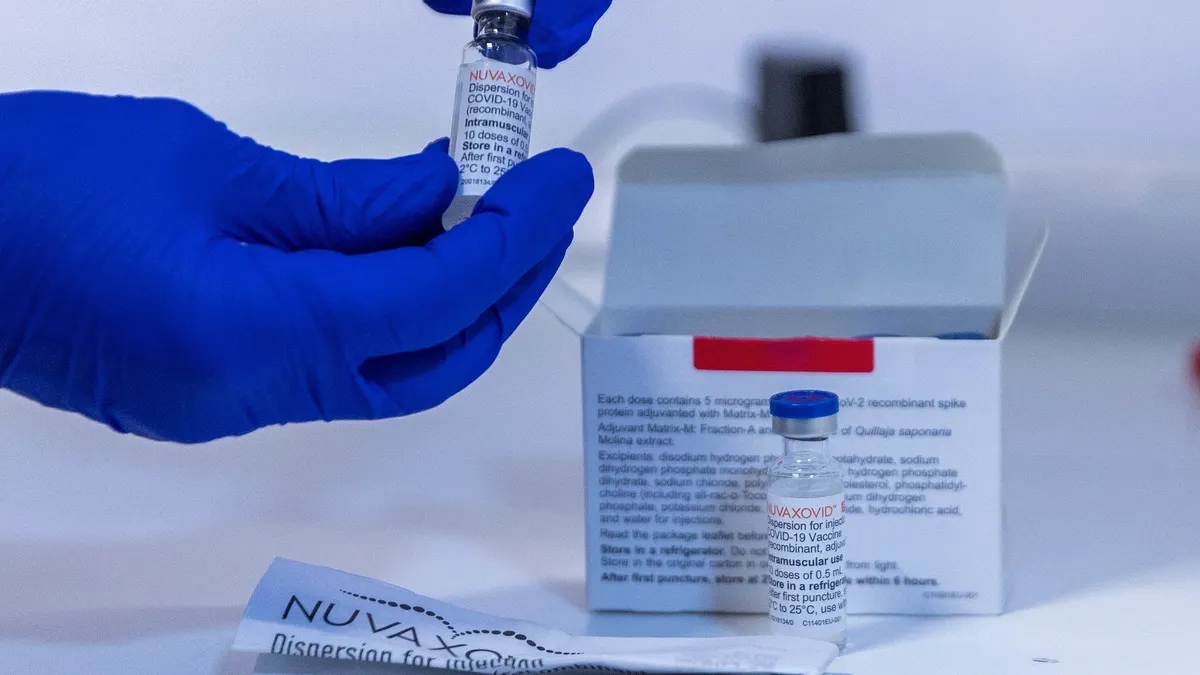Dive Brief:
- Moderna’s seasonal influenza vaccine met its main goal in a large Phase 3 trial, reducing the risk of influenza-like illness in people 50 years and older by 27% compared with those given a marketed shot targeting three or four strains of the virus, the company said Monday.
- The COVID-19 vaccine pioneer said it will begin discussing an approval submission with the Food and Drug Adminstration, aiming to launch what would be the first messenger RNA-based influenza vaccine in the U.S. as early as the 2026-2027 flu season.
- FDA submission of the flu vaccine data could also pave the way for Moderna to also seek approval of a combination COVID-19 and influenza shot. However, they will be reviewed by an FDA and Centers for Disease Control and Prevention, which governs clinical use of approved flu shots, that have become more unfavorable to vaccines and mRNA medicines.
Dive Insight:
Since helping lead the world out of the pandemic by speedily developing its vaccine Spikevax, Moderna has struggled to find a second act. With declining uptake of COVID-19 boosters — access to which will be limited in the future — and disappointing growth for its newest vaccine for respiratory syncytial virus, the company has seen its near-term outlook limited.
An mRNA cancer vaccine it developed has generated promising data, but remains in late-stage testing.
However, its mRNA platform continues to generate effective vaccines. If approved, the seasonal flu shot could be a new source of growth. The trial tested Moderna’s shot, codenamed mRNA-1010, against four marketed vaccines developed by GSK to determine if the experimental shot could reduce incidence of flu.
In addition to the broad analysis in people 50 and older, Moderna said its shot also reduced the risk of sickness in those 65 and older by 27%. The company also said the vaccine showed strong effectiveness for all the strains included in the shot.
According to the company, side effects were mostly mild and related to injection site pain or flu-like symptoms. But Moderna added there were no significant differences between those side effects in people who got MRNA-1010 and other vaccines.
The positive data are most significant for potentially enabling Moderna to submit the combination flu-COVID shot, “which represents a more differentiated commercial opportunity,” TD Securities analyst Tyler Van Buren wrote in a note to clients.
Leerink Partners analyst Mani Foroohar noted, however, that the shot had resulted in more adverse reactions in another trial, which could trigger increased scrutiny from the FDA.











































